feeder insider w/ Corina Șuteu [en]
Corina Șuteu is a very active cultural entrepreneur and reputed cultural policy expert working to promote Romanian culture, with a focus on the New Romanian Cinema. Since 2006, she chairs the Romanian film festival in New York, which has been nourished, with passion and commitment, by the belief that the gifted Romanian film community deserves to be exposed on a sustainable basis to American audiences. We talk to Corina about the 12th-anniversary edition of Making Waves :: New Romanian Cinema, fARAD 2017 and other thought-stimulating subjects.
update: NYC-Arts recommends Making Waves :: New Romanian Cinema as one of their Top Five Picks
New Romanian Cinema / art / film / festival
I like the sound of… the ocean.
When travelling… I like to dream about what to do next.
An art gallery I visit often… I visit museums more.
Sunday evenings… I am doing what I do the rest of the week, different things.
What I like about New York City… everything!
An app I use daily… hmm, don’t know what to answer to this one…
The first film I remember watching… ”The Wizard of Oz”
A secret spot in Bucharest… the small park near my home, Luigi Cazzavillan.
In school, I rarely enjoyed… what was not enjoyable.
3 films that influenced me deeply… “La Strada” (Fellini), “Some Like It Hot” (Wilder), “The Seventh Seal” (Bergman).
 Corina Șuteu, photo by Ozier Muhammad courtesy of the New York Times
Corina Șuteu, photo by Ozier Muhammad courtesy of the New York Times
Cristina Popa: Making Waves :: New Romanian Cinema safeguards the existence and spirit of the Romanian Film Festival in New York, which was initiated by you in 2006. What inspired this original initiative and what are the noteworthy milestones along the way?
Corina Șuteu: The festival was born as a program of the Romanian Cultural Institute in New York City, at Tribeca Cinemas, and already had this good thing about it from the beginning: it was produced and curated by a motivated and inspired team. It is very important to organize and curate a festival and to know how to select and defend the films that you believe are the ones deserving to be showcased in an American context. Secondly, the festival succeeded to expand over the years, through its move to Lincoln Centre, through its strong, energetic commitment to promoting Romanian film talents in the US. This really made a difference, as the festival has always been professionally and culturally competitive. This festival is living proof that quality cultural events can survive political crises, budgetary cuts or any other kind of difficulties, if a team of three talented producers and creative people put their energies together. Last but not least, the festival became an avenue to present and promote all important films and directors, producers and actors of the Romanian New Wave in prestigious cultural venues in NYC. This year, for example, we coproduce the festival with BAMcinématek, one of the most prestigious contemporary venues in NYC. “Moving forward” and “making waves” are the two strong taglines for us: Mihai Chirilov (artistic director of MW), Oana Radu (general manager of MW), and myself.
CP: The 12th edition of Making Waves presents compelling Romanian productions, special original programs, panels, conversations and new initiatives. Who will the audience meet this year?
Corina Șuteu: The festival starts today (Nov. 30) upstate NY at the Jacob Burns Film Centre, in Pleasantville, with Nae Caranfil’s “6,9 on Richter Scale,” followed by the opening, on the 4th of December, of Making Waves in New York City, at BAMcinématek, with Bogdan Mirica’s “Dogs.”
At the Jacob Burns Centre the festival will showcase a series of premieres like “Fixer” (Adrian Sitaru), Romania’s proposal for the Oscars, “Breaking News” by Iulia Rugină, “Ana Mon Amour” by Călin Peter Netzer or the documentary “The Last Kalderash” by Cosmin Bumbuț and Elena Stancu.
At BAM we redesigned the traditional content of the original scope of Making Waves by focusing on new talents to watch (directors Bogdan Mirică, Paul Negoescu, and Emanuel Pârvu) and on an author in focus, director Anca Damian, an intellectually challenging and original voice in the Romanian contemporary cinema, whose most recent release, “In Perfect Health,” will also be presented.
Besides directors like Sitaru, Silișteanu, Damian, Negoescu, Pârvu, Rugină, actors Anghel Damian and Cristina Florea (“In Perfect Health”) and producer Miruna Berescu (“Meda”) will also be present.
This year the festival also hosts an industry talk with financial support from AFCN, bringing the Romanian guests and American producers, distributors and publicists together for a professional exchange to engage more transparently the necessary connection between two very different professional film cultures.

CP: The festival’s collaborations with leading film centers such as BAMcinématek in New York City and Jacob Burns Film Center in Pleasantville, NY, augment the status and exposure of the new Romanian Cinema. How have these partnerships evolved? Who, furthermore, supports this year’s anniversary edition?
Corina Suteu: It is not easy to convince this kind of institutional partners to trust us as outside partners, and we believe it matters that they did. The important thing to say is that exposure was always first and foremost conditioned by the gifted directors and actors we presented. In the United States, since Puiu’s great critical acclaim with “The Death of Mr. Lăzărescu” and Porumboiu’s “12:08 East of Bucharest”, followed by the overwhelming and very successful international exposure of Mungiu’s “4 Months, 3 Weeks and 2 Days” — the first and so far only Romanian film nominated for the Golden Globes — American audiences followed closely the New Wave in Romanian cinema and Making Waves engaged in the demanding task of keeping this attention alive and this window of opportunity open for other, new auteurs.

The very important step was when we, the organisers, decided in 2012, during a political turmoil in Romania, to continue the festival on a private basis and were supported fully by the Film Society of Lincoln Center, who trusted the quality of the event. The first two years following 2012, we ran crowd funding campaigns, had annual financial support from Adrian Ghenie and the Trust for Mutual Understanding, The Blue Heron Foundation, HBO Romania, other private donors (Mihai Pop, Andrei Both, Vladimir Tismăneanu, Șerban Savu, Dan Perjovschi, Alexandre Almajeanu, Andrew Solomon, Lucian Pintilie and Marie France Ionesco, Daiana Voiculescu among them). We are also very grateful to the support we receive from Andi Vasluianu, co-founder of FilmETC, Mona Nicoară, our most actively engaged partner Anda Onesa, who established the relation with the Jacob Burns Film Centre, and Stefania Magidson, who is constantly networking on behalf of the festival. I cannot list here all of the names of our funders, so I just named a few that contributed in a decisive way to the longevity of the festival.
This year some of these donors were joined by UCIN and AFCN, who are supporting specific activities related to the guests from the Romanian film industry.
There is no festivism about Making Waves, it fundamentally is an event dedicated to the curated presentation of Romanian contemporary film to American, Romanian, and international audiences living in the United States.
I am a strong believer in long-term objectives for cultural initiatives. The circle of American partners that grows as a network today around Making Waves is composed of people who are very knowledgeable and active in the American film industry and this makes a real difference when one thinks in a strategic way. Sustainable achievements cannot come unprepared.
CP: What are some of the challenges you face introducing Romanian Cinema to new audiences? Is there a strategy you acquired to remove cultural barriers?
Corina Șuteu: In a global world, cultural barriers should no longer exist, only connective understanding. But we are not there, yet. We address an audience who already loves film, is curious and internationally open — this is the key advantage about working with cultural institutions with great reputation.
Also, as I already said, the breakthrough for Romanian cinema in the US media happened ten years ago, when important American film critics, like J. Hoberman (The Village Voice), A.O. Scott (The New York Times) and Scott Foundas (The LA Times) wrote about it. Now the challenge is to keep the attention alive and continue to show a carefully selected group of new authors and do it in venues with important reputation.

CP: Thinking of all the films screened during the festival’s past editions, can you name some of your favorite titles and tell us how they speak to you?
Corina Șuteu: This question is a hard one, as it is extremely undiplomatic to express more admiration for a certain film as a festival organizer, but I will dare answer it. We presented an important number of films and the four choices I will speak about below are all purely subjective.
Among the precursors of the New Wave films, “Sequences” by Alexandru Tatos is one of my favorites. “Making Waves” was born because Peter Scarlet considered this film also as one of his favorites and at the time he was the Tribeca Film Festival director. When we met, this was his first question: did I like “Sequences”? Luckily, I did.
“Sequences” is one of the most theatrical and subtle films I ever saw about power, complicity, illusion, and fate.
“The Death of Mr Lăzărescu” is, I believe, a masterpiece. I saw it in France in 2005, before knowing that I will ever have to do anything with the Romanian film industry (I was working and living in France at the time) and when we got out from the cinema my daughter cried for ten minutes. A gentleman came over and said: “I understand why you cry.” This film is one of the most philosophical and humane films, all of it translated into a cinematic language that is rough and highly poetic at the same time. A very, very strong visual experience.
“Liviu’s Dream” by Corneliu Porumboiu is one of my very special picks. Strange and compelling, with a mystical and compact aura around it — one of the most impressive films about faith.
Andrei Ujică’s “Videograms of a Revolution” — I like it for obvious reasons. Whenever I see this conceptual work of art I re-live those moments in 1989 and I review what happened since.
CP: What are the most active organizations working to promote contemporary Romanian cinema? How do you see their contributions?
Corina Șuteu: The most active organisations are festivals like TIFF, Les Films de Cannes a Bucarest, One World, or the Astra Film Festival.
There is no better international promotion than making people see Romanian films and meet professionals from the industry. However, this is not enough. The National Centre for Cinematography in Bucharest should play a much more active, competent, and dedicated role in this.
We should create an agency similar to Unifrance (the French Agency), dealing with the promotion of Romanian cinema abroad. The government should have a coherent long-term strategy about promoting Romanian films, adapted to each global region. Alas, we do not have one. For the time being.
CP: Your professional expertise can inform a clear vision about the closing of Romanian state-owned cinemas, roughly 400 buildings, many of them historical monuments. Now, the country tops a negative chart, having the smallest number of screens per person in Europe. What are the inescapable losses for the underserved audiences? How do you foresee the rehabilitations of these spaces?
Corina Șuteu: The role local authorities have in this is crucial, but these authorities have to be accompanied by a group of competent experts in order to rehabilitate the cinemas, to create a friendly and adapted space for moviegoers, and attractive art house programming. Cities like Cluj, Arad, Iași, Constanța are already good examples — things can move in the right direction when there is political will.
Recently, Bucharest hosted the general assembly of the Europa Cinemas network and this organization is ready to give support to the existing initiatives.
FilmETC has the intention to create a support group and encourage the effective birth of a chain of art house cinemas in some cities. If an active group of cinemas set up a self-determined, collaborative network, I am sure other cities will follow.
CP: The Romanian Film Initiative Association also organizes fARAD, a documentary film festival that electrified Arad in recent years. What are some of your beloved memories from the 2017 edition?
Corina Șuteu: I was extremely impressed by the mentoring work at the fARAD Lab dedicated to young documentary authors. This lab has great potential under the supervision of Dana Bunescu and I am sure we can further develop it. Mona Nicoară’s programming, as usual, was timely and brilliant.
It was heartwarming to see all the local participation and enthusiasm and the vivid and profound debate engaged with film directors like Magnus Gertten (“Becoming Zlatan”), Pascale Lamche (“Winnie”), and editor Erin Casper (“Risk”).
Film audiences in Arad opened immensely in the last four years simply because they were offered the possibility to see art house films in their hometown and see Q&A sessions with a variety of foreign guests. This is important and relevant. It is further proof that this approach works well.
CP: For 13 years now, feeder works as Romania’s alternative media agency. Joining the Capitol Cinema / Summer Theatre reintegration campaign, we grasp all granted occasions to rekindle the collective memory and (re)introduce its captivating history – premiering Romanian productions and co-productions, as early as 1912. What do you think could be the cultural value added by a rehabilitated historical cinema?
Corina Șuteu:
Buildings are not just buildings. The memory connected to a building, the cultural and emotional value it bears are interlinked within the process of rehabilitation. One reinvents and protects this memory by re-launching a cinema, or a theatre space, or a museum, or an old house. One has to reconnect to the past in order to better envision the future. This is of great cultural and emotional importance. Finally, in cinema, like in life in general, we all need to take possession of the old in a new way.
Photos © Julie Cunnah
Words by Cristina Popa (Random)






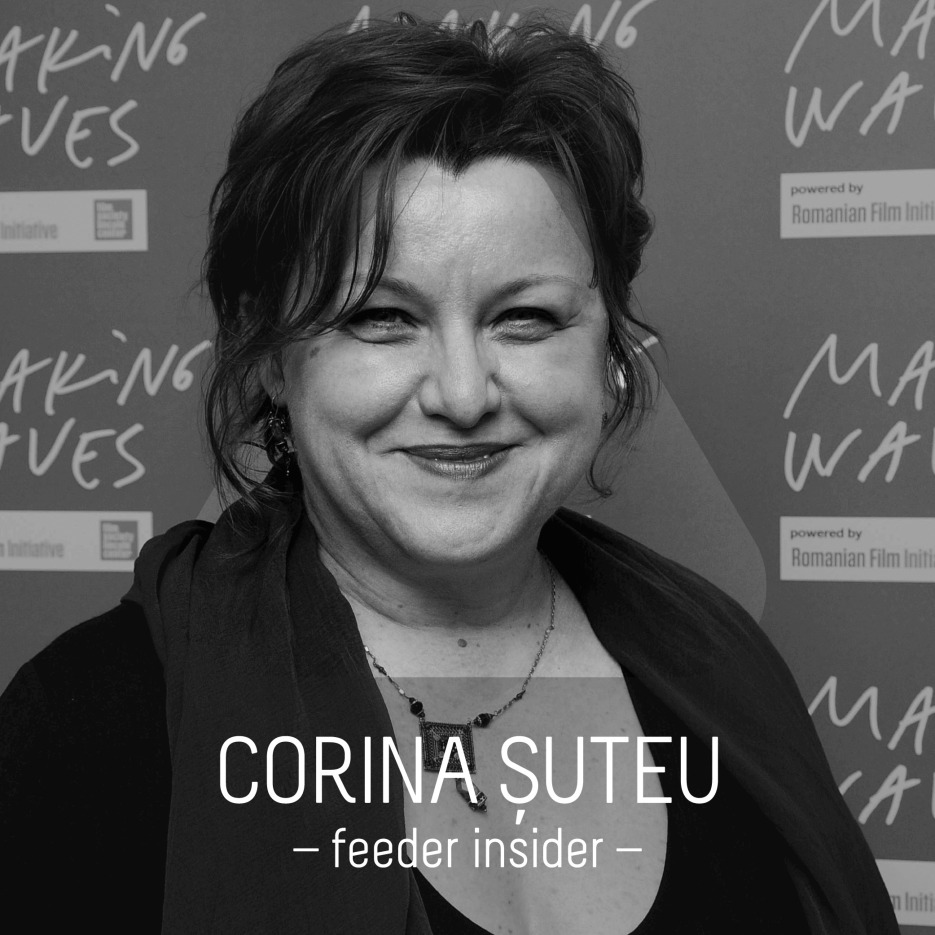
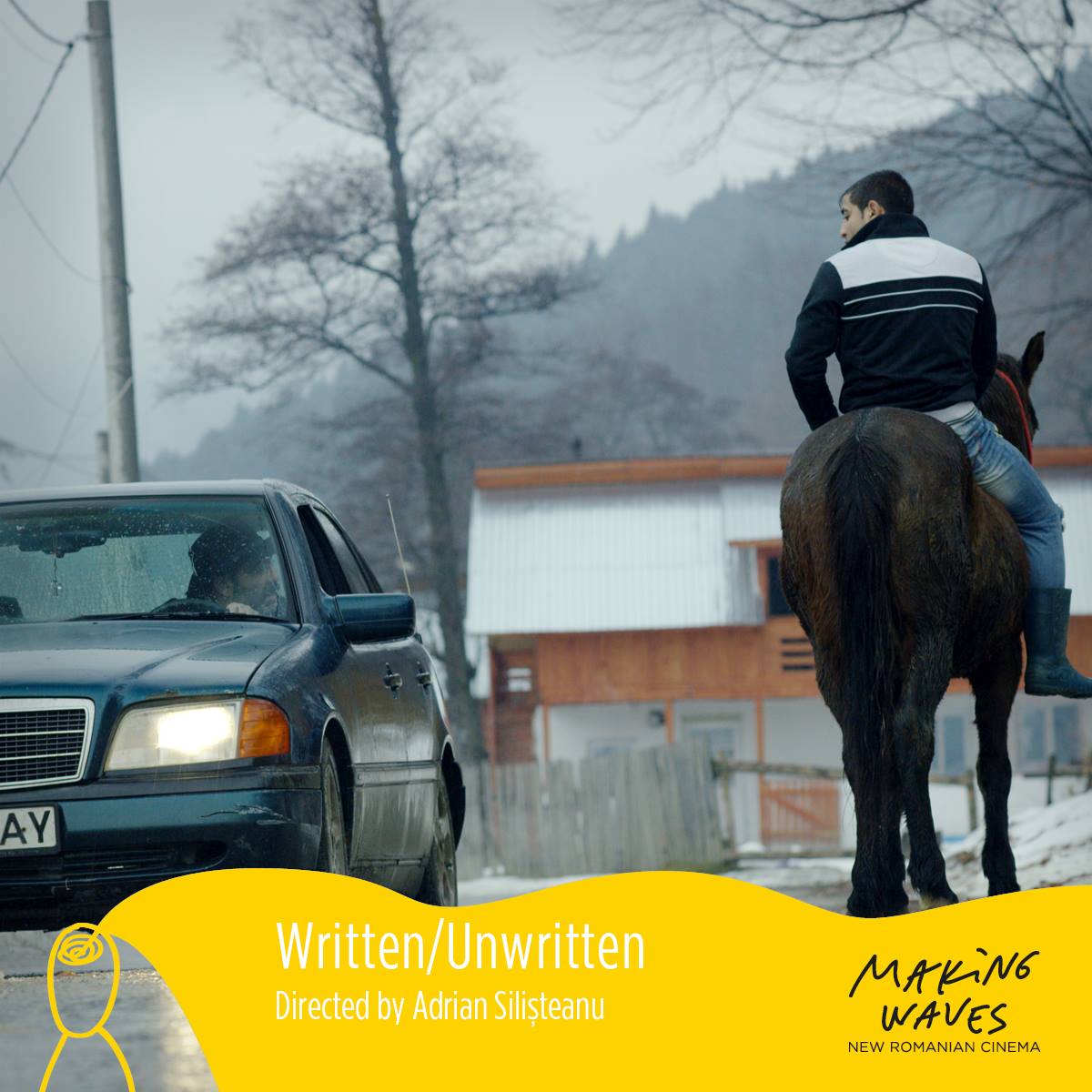
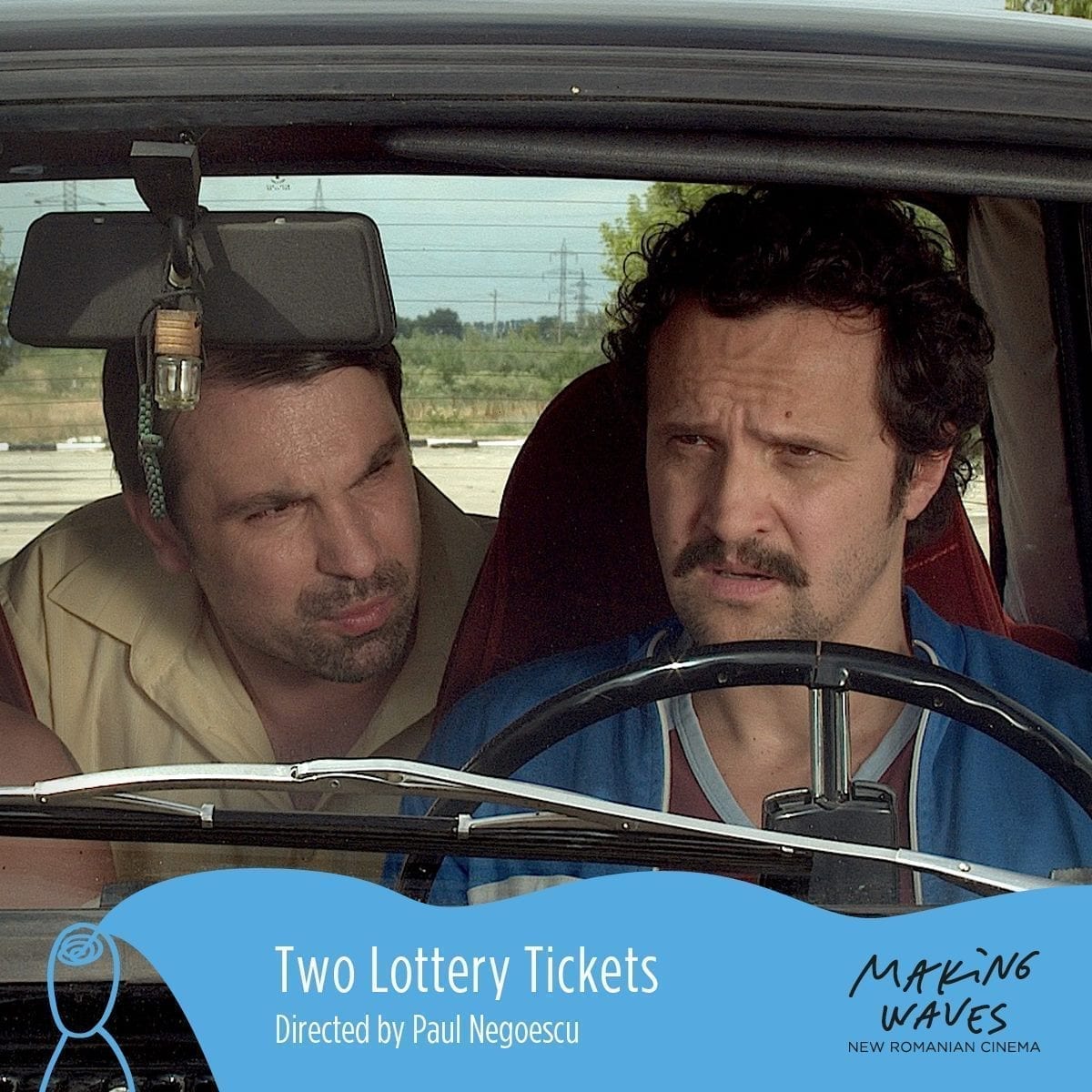
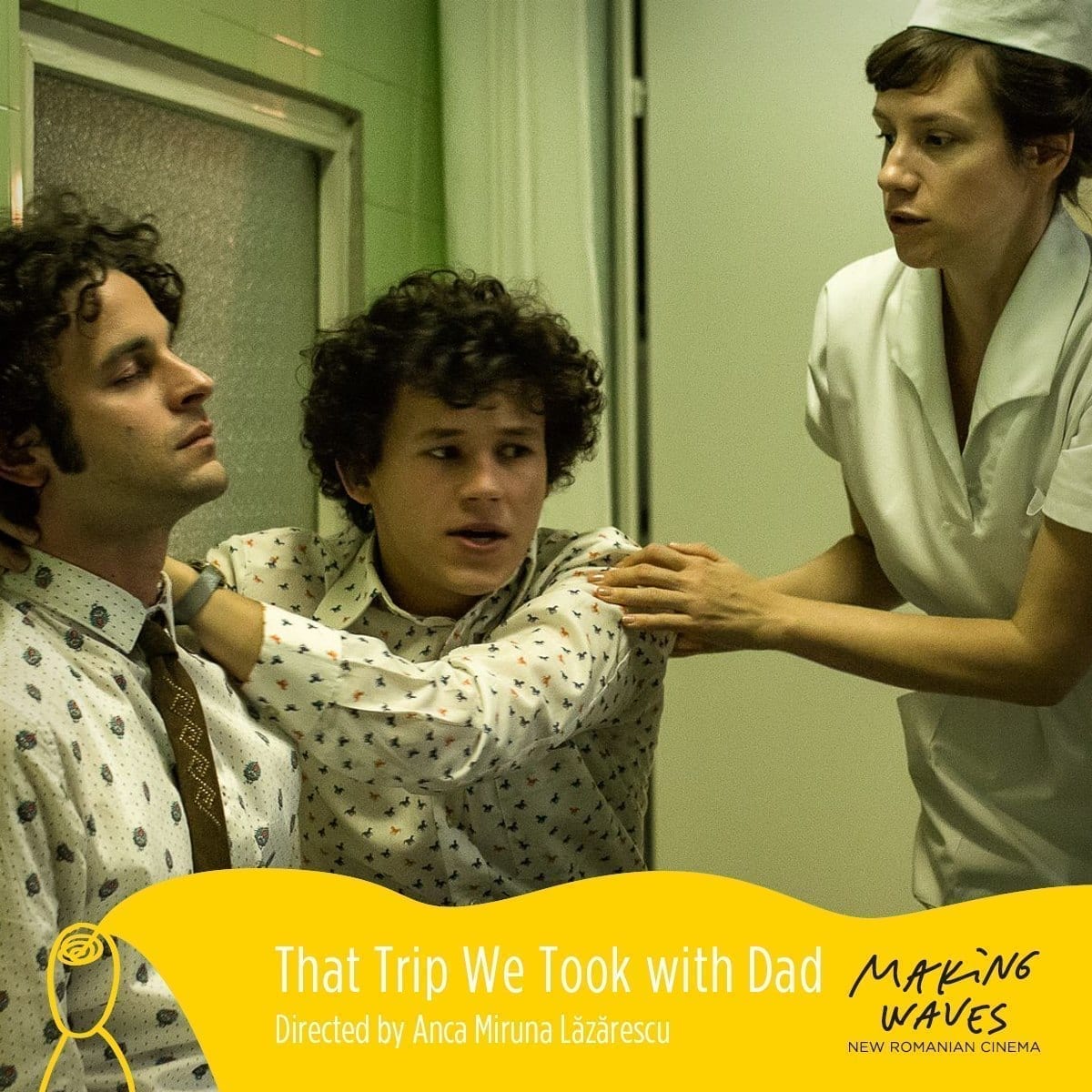
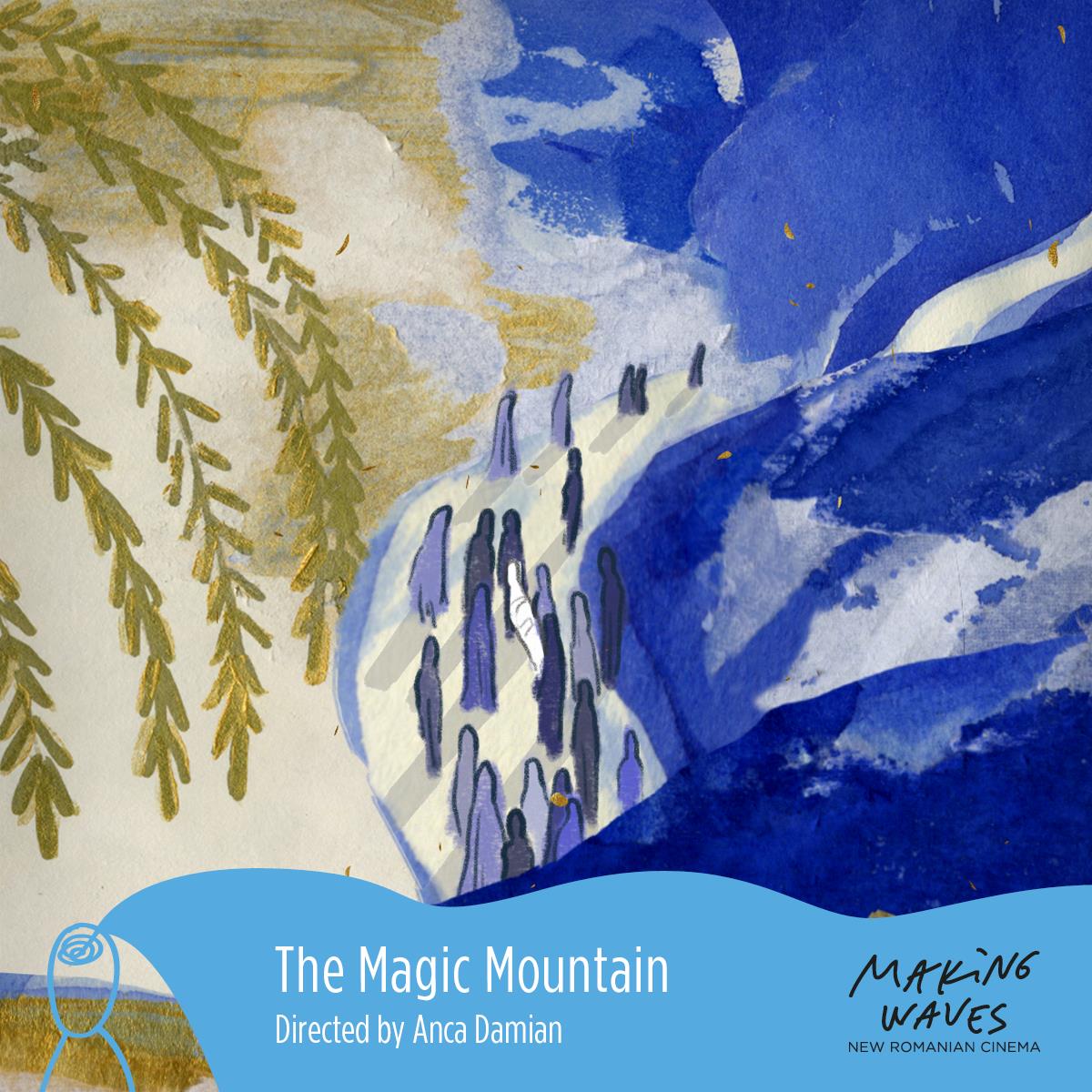
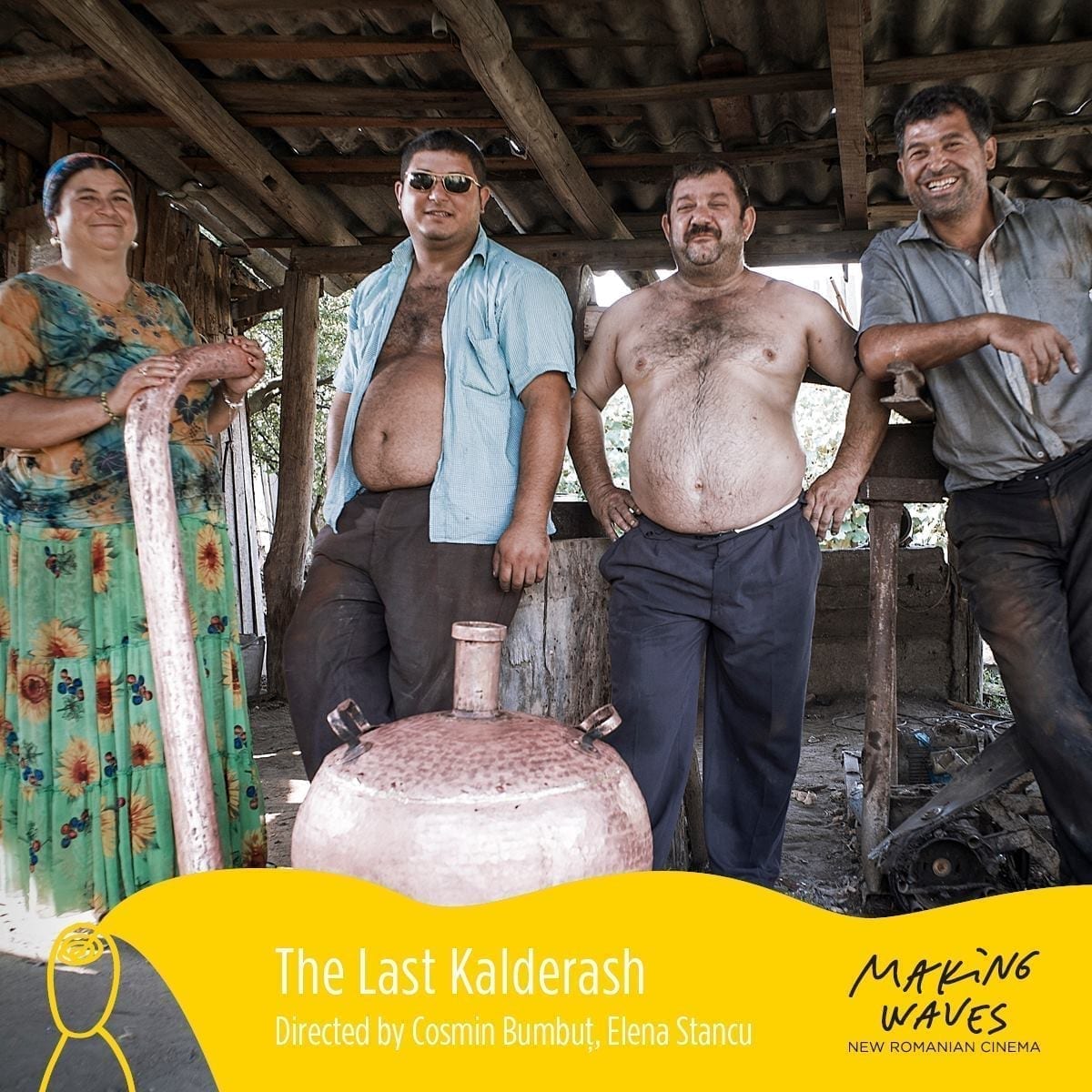
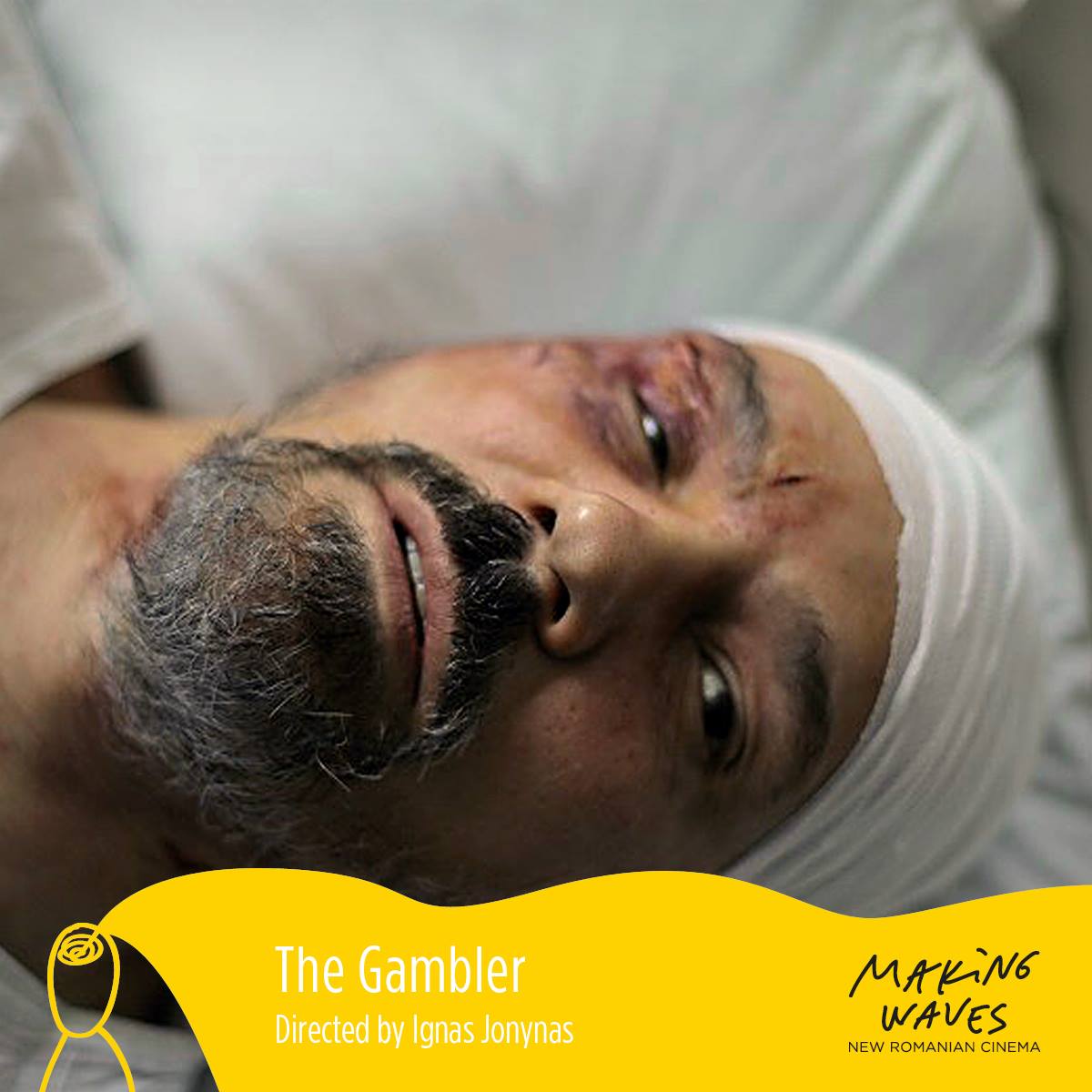
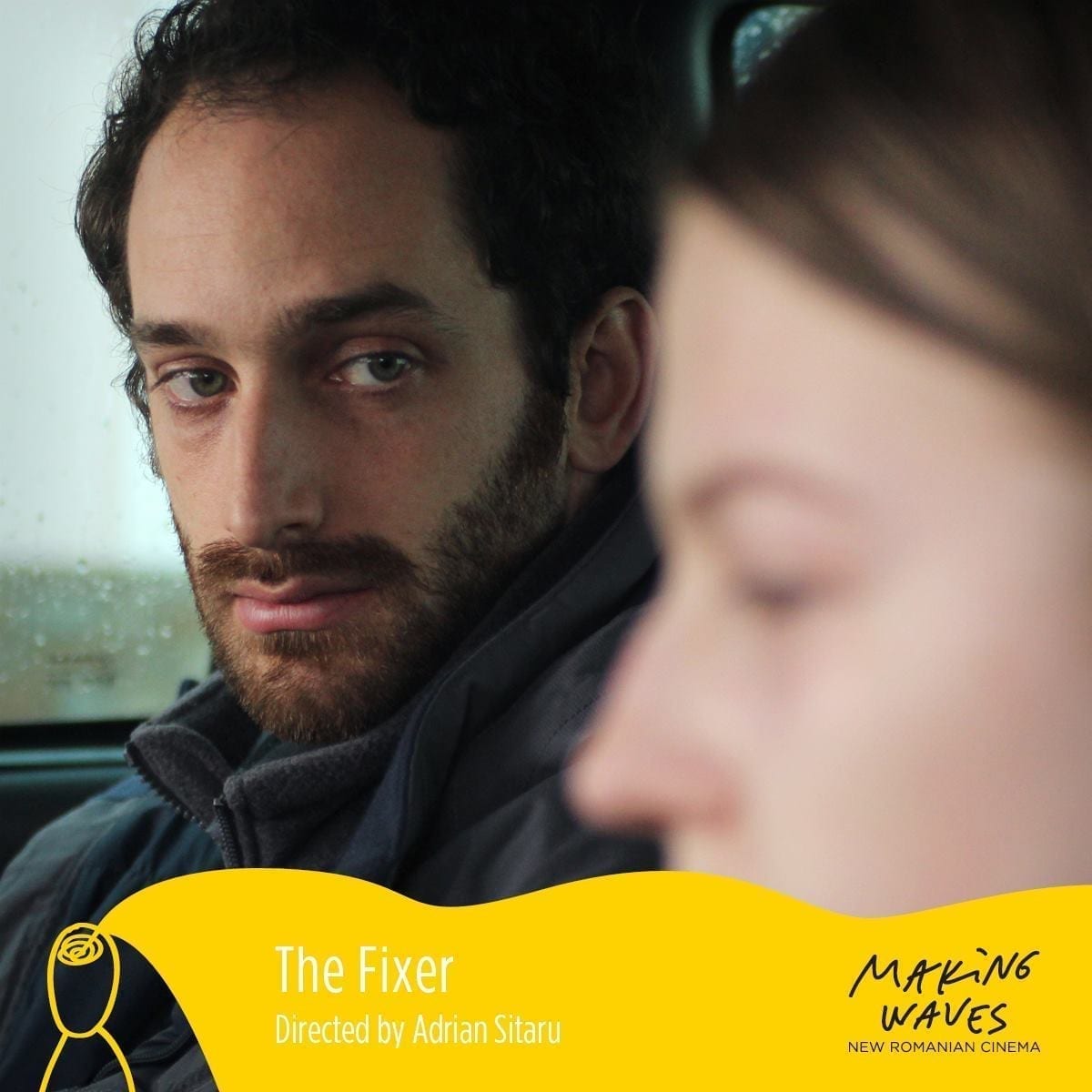
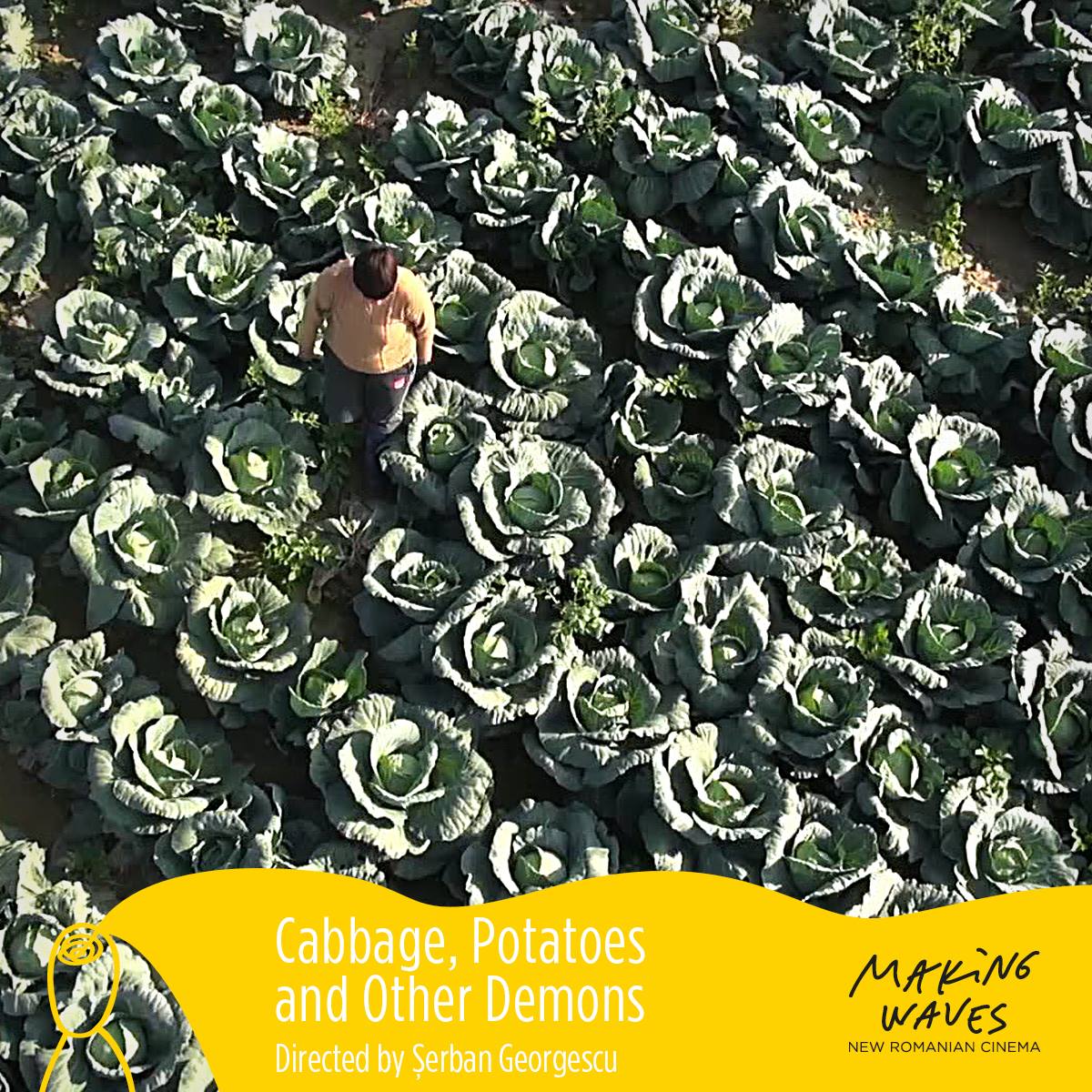

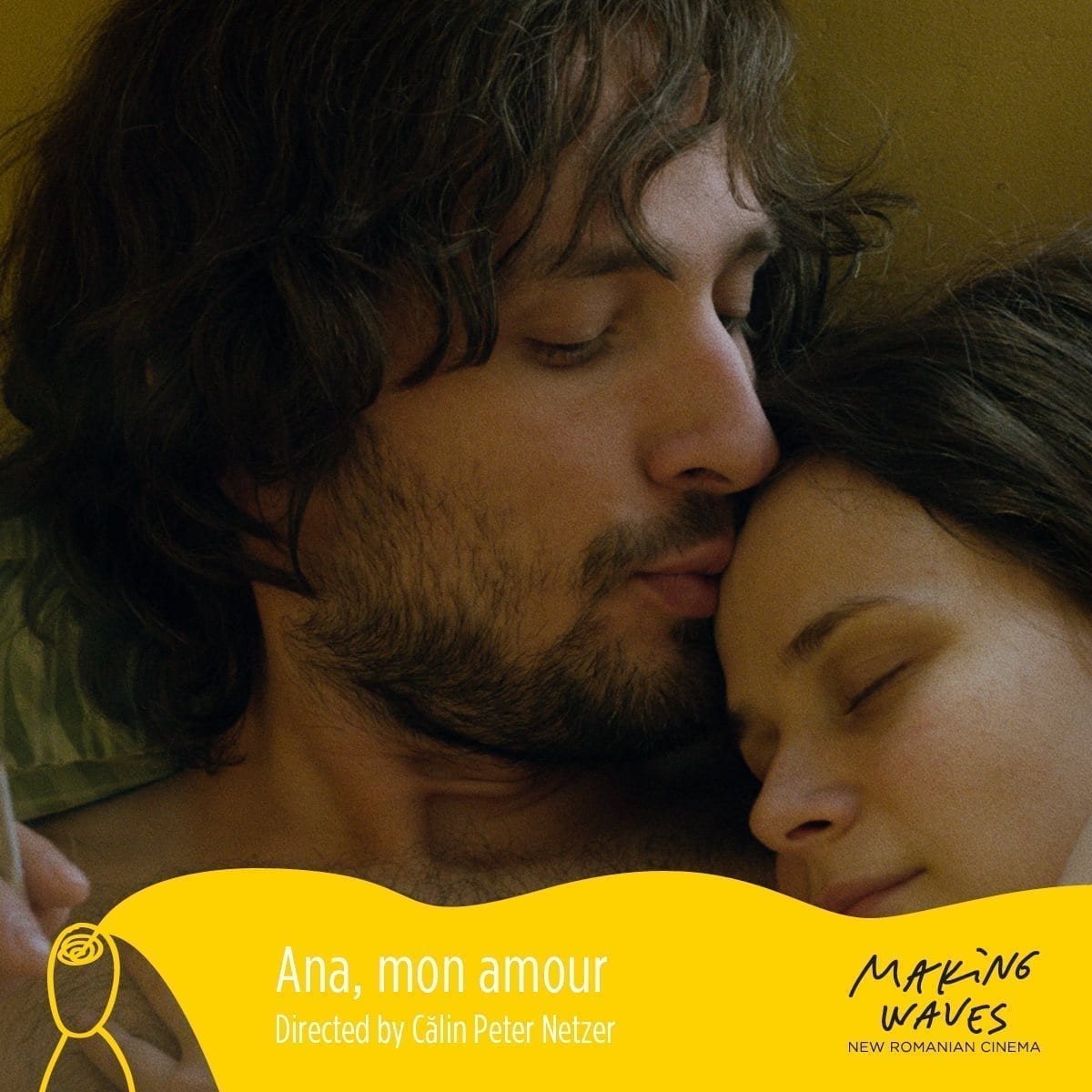
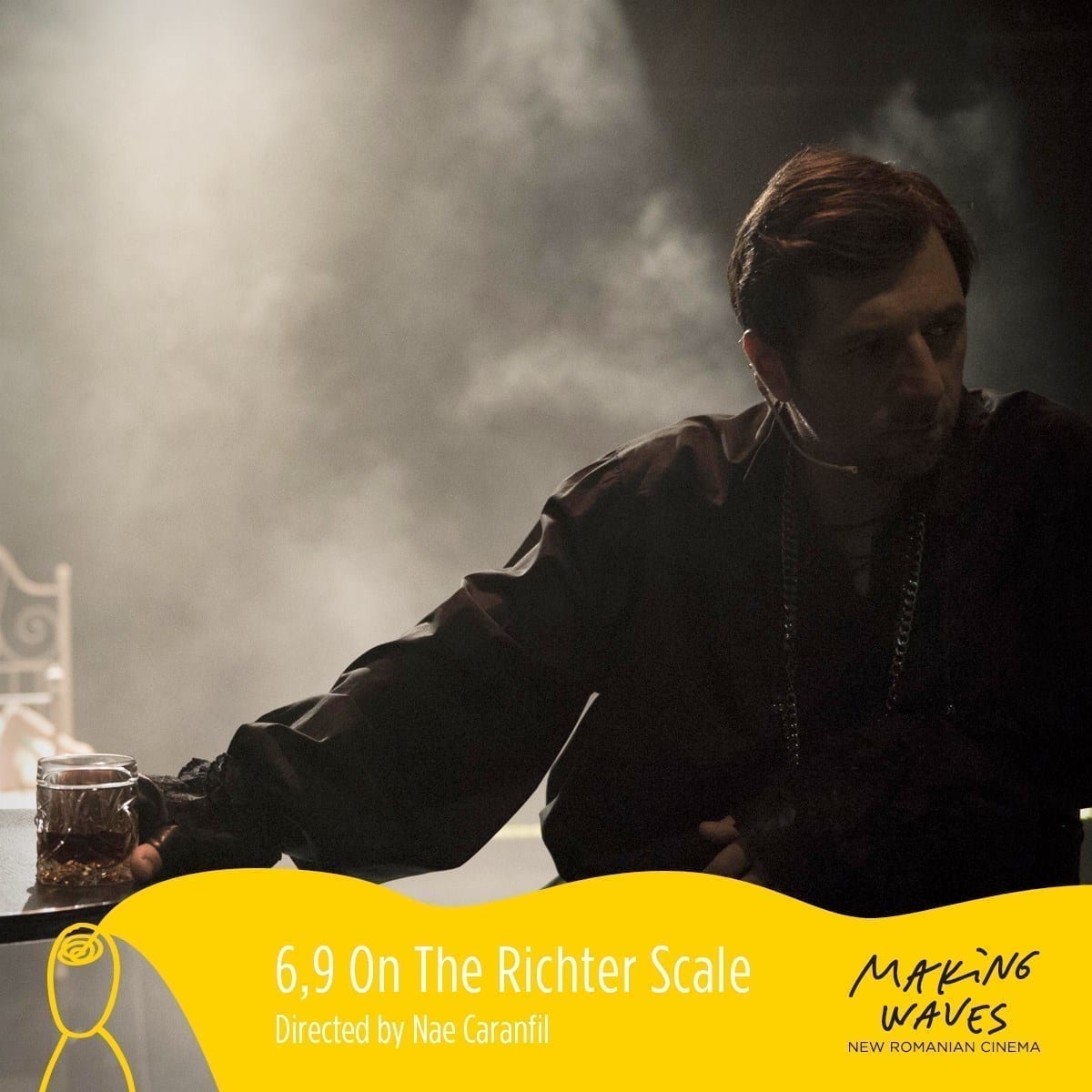
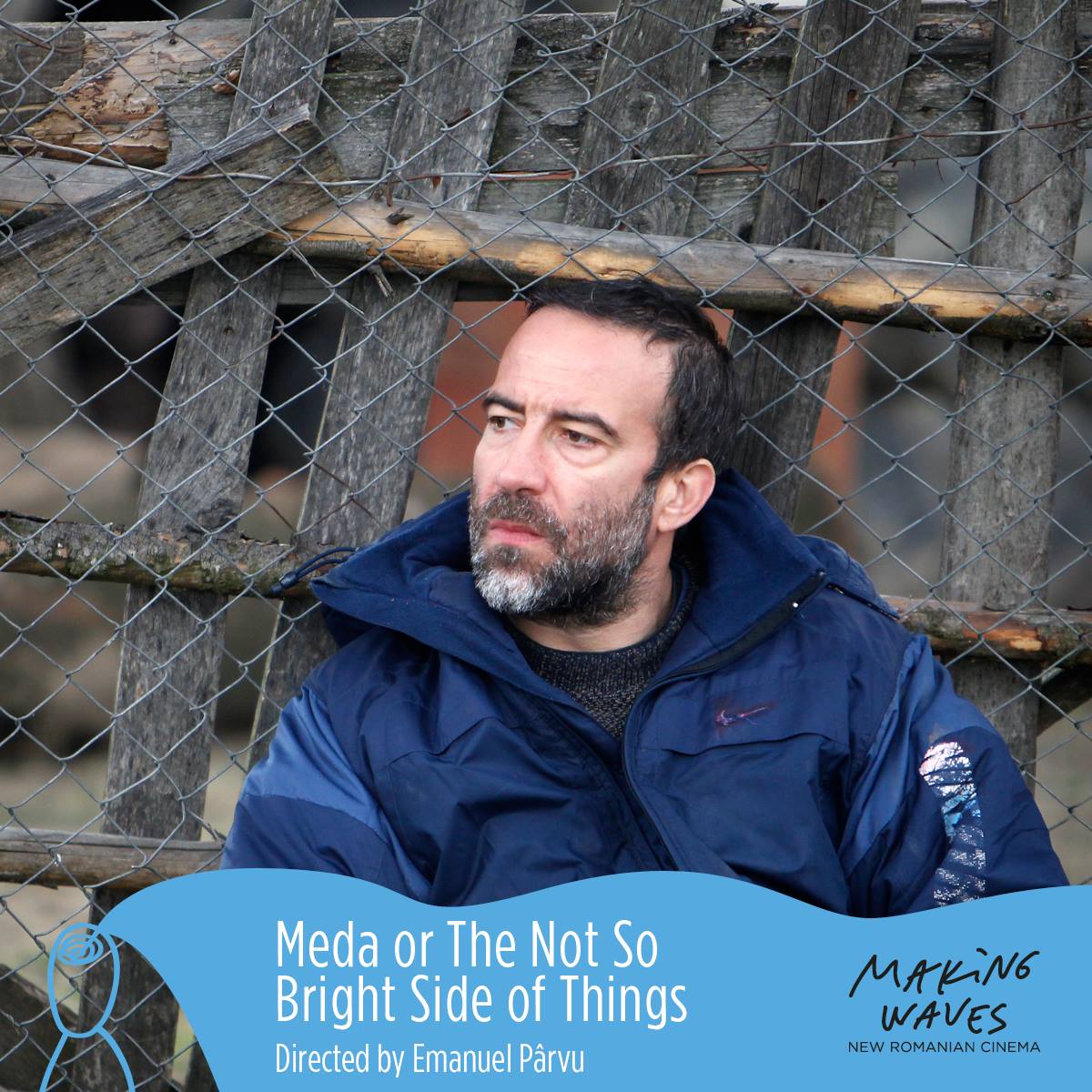
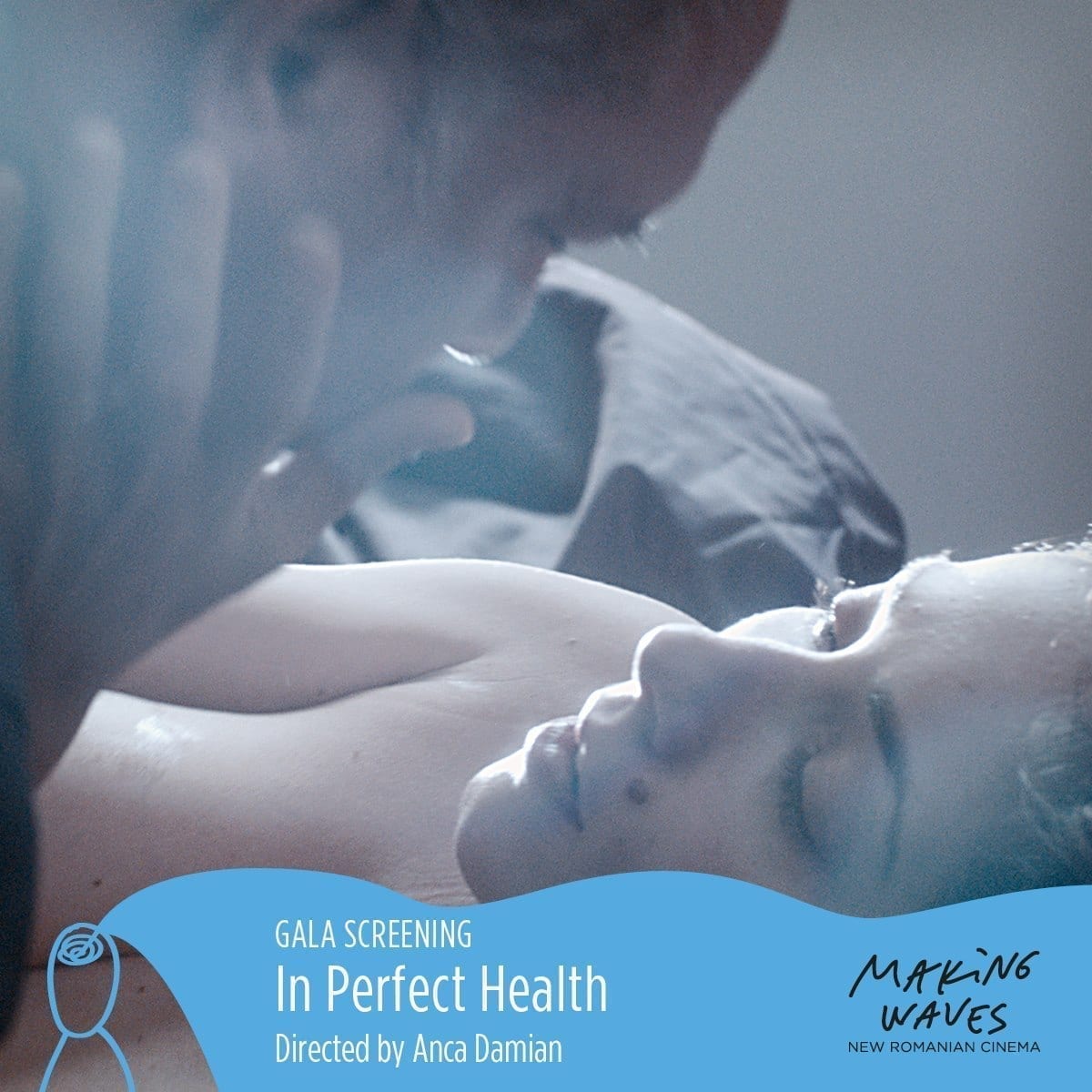
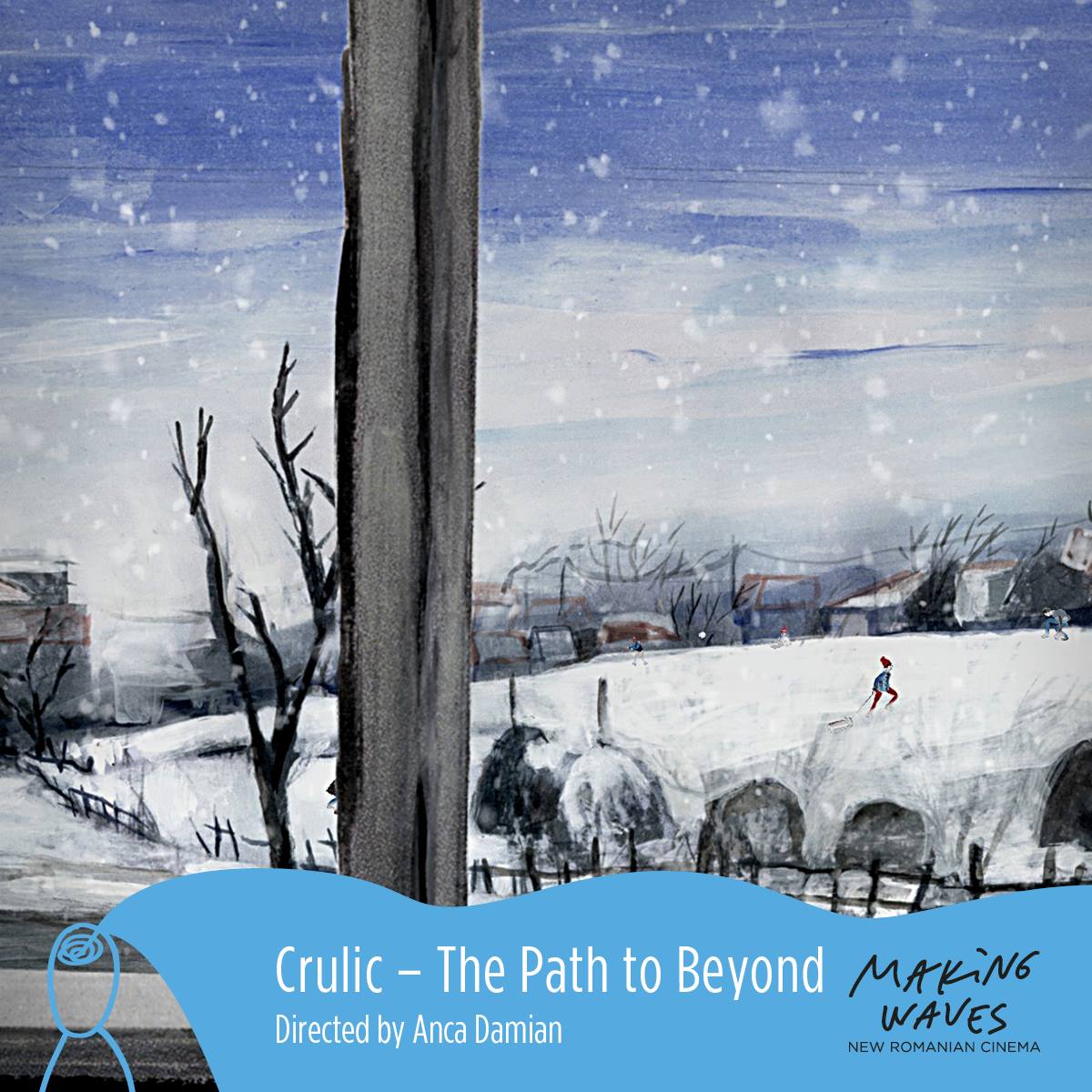


Pingback: Interviu cu Raluca Ganea despre București RE:imaginat • feeder.ro
Pingback: POLL: What are the most exciting festivals in Romania, 2018? | | Feeder.ro
Pingback: Laurențiu Damian – Cioburi de viață | | Feeder.ro